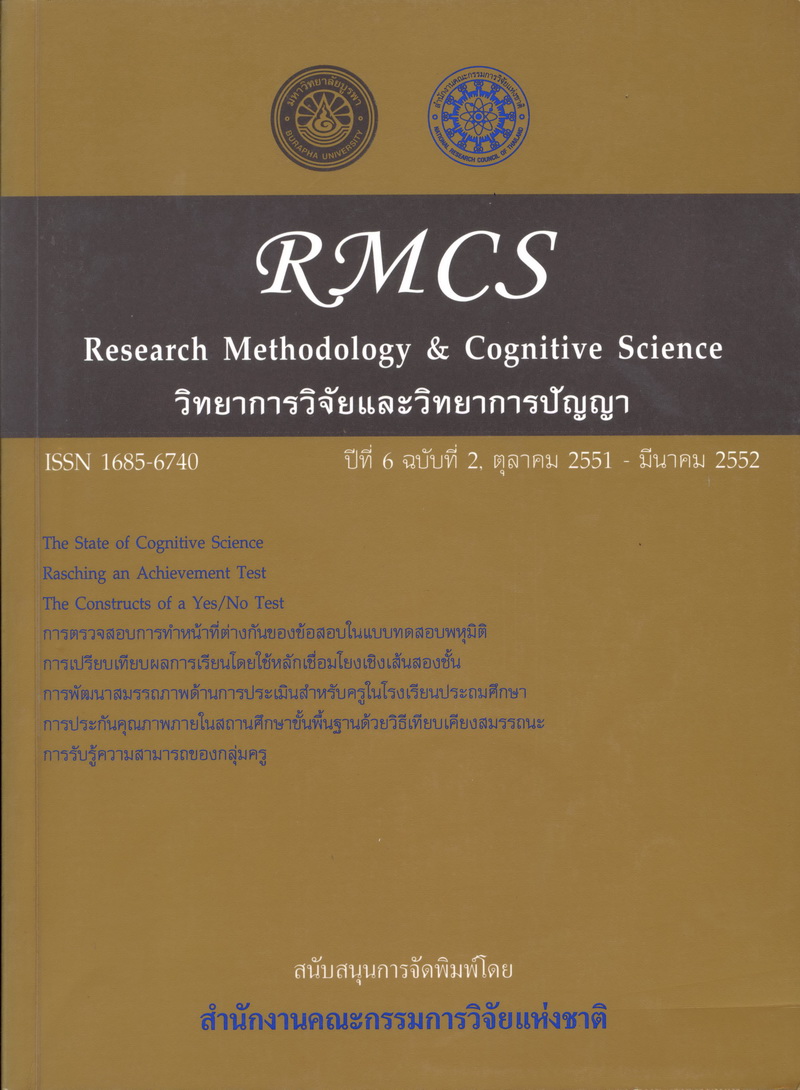Variables Influencing Collective Teacher Efficacy: A Two–Level Hierarchical Linear Model
Main Article Content
บทคัดย่อ
The purpose of this research was to determine the variables that influence the collective
efficacy of teachers, to examine the interaction among variables at the teacher-level and schoollevel, and to construct a regression equation for collective teacher efficacy. The sample consisted of 900 teachers in schools of the Chonburi Educational Service Area. The independent variables at the teacher-level were mastery experience, vicarious experience, social persuasion, and job stress.
The independent variables at the school-level were instructional leadership, supervision, and school climate. The dependent variable was collective teacher efficacy. Research instruments included the collective teacher efficacy questionnaire, mastery experience questionnaire, vicarious experience questionnaire, social persuasion questionnaire, job stress scale, instructional leadership questionnaire, supervision questionnaire, and school climate questionnaire. Hierarchical linear modeling was employed for the multi-level analysis.
Results were as follows:
1. At the teacher-level, the variables which influenced collective teacher efficacy were
mastery experience, vicarious experience, and social persuasion.
2. At the school-level, the variables which influenced collective teacher efficacy were
instructional leadership and school climate.
3. There were interactions among variables at both the teacher-level and the school-level;
these were between instructional leadership and vicarious experience, school climate and mastery experience, and school climate and social persuasion.
4. The variables in the model were found to account for 54 percent of dependent
variable’s variance.

